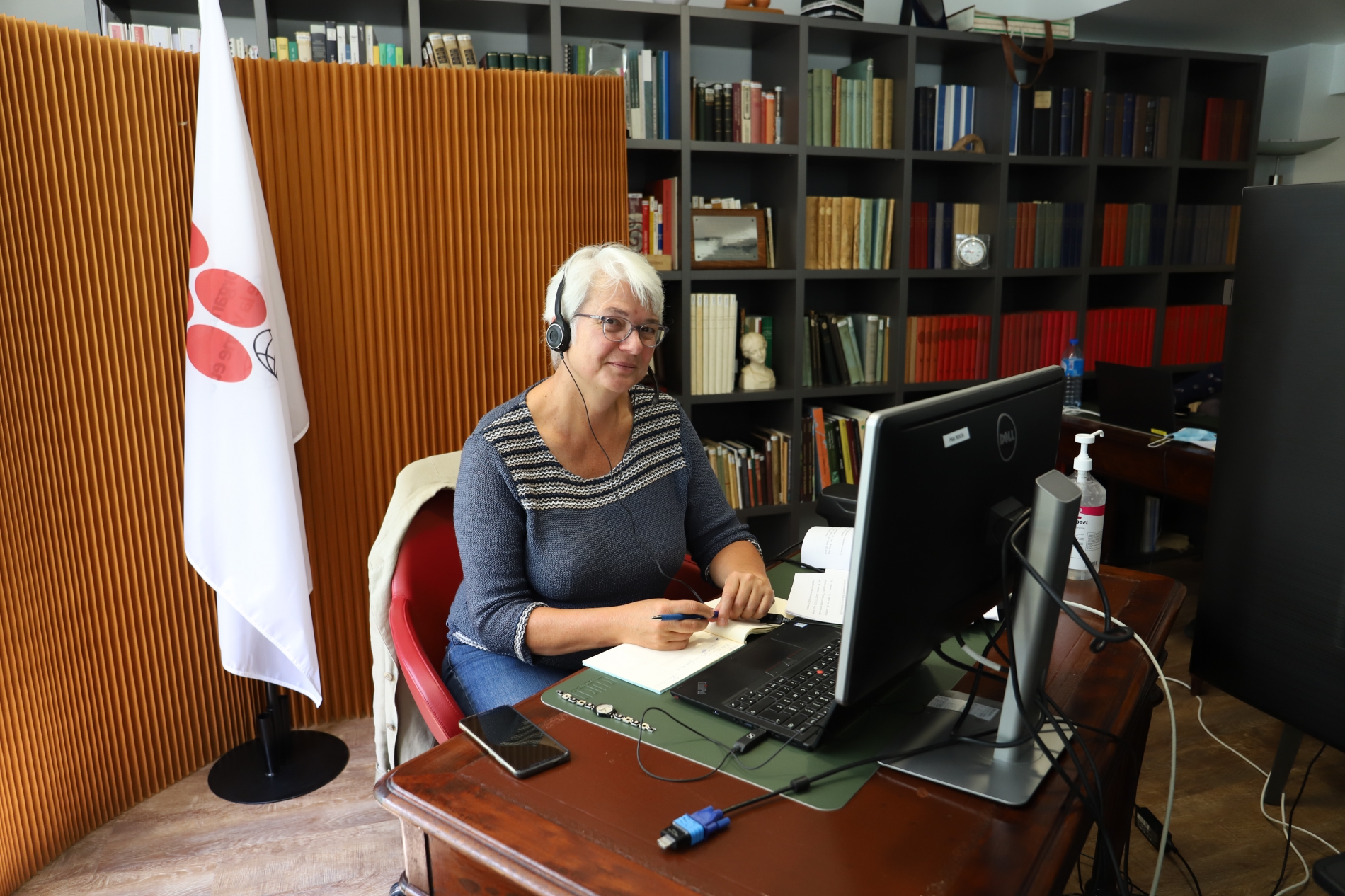Due to the pandemic impacting us all, our organisation recently held these meetings online for the first time. Inevitably, the current health crisis has taken a prominent place.
The expert groups ECOMAR (Economic Analysis, Markets and Consumption) and STATCO (Situation and Statistics) were invited to answer a questionnaire on the impacts of this crisis. The main wine-growing countries (about 15) answered and the results were presented at the meetings held throughout June.
In this article we summarise the main outcomes of the questionnaire, as identified and discussed by OIV experts. The summary of conclusions is provided by Françoise Brugière, the Vice President of the ECOMAR group.

A crisis preceded by a challenging context
Quantitative analysis of the international wine trade in the first half of 2020 is delicate. Indeed, the health crisis comes after a disturbed end of 2019 in China and Hong Kong and, more specifically for France, by the «Trump tax». With the arrival of the pandemic, according to the OIV experts, logistical problems were caused by the implementation of sanitary protocols at ports and airports entrances, the suspension of passenger flights, the priority given to care for those carrying medical equipment, and then to providing basic necessities. Subsequently, with or without the inclusion of wines, these were recovered over the weeks. Nevertheless, world wine trade recorded a decline in value of 6.3% in February and 10.7% in March (compared to February and March 2019). More specifically, Chinese imports decreased by a quarter in both volume and value for the first 4 months of 2020 compared to the last 4 months of 2019. Brazil, Switzerland, France (over 4 months), the UK, Germany and Russia (over 3 months known) reduced their imports while the USA, Canada, Ireland (in value) as well as Spain, Czech Republic (in volume) increased theirs. The price trend is clearly downwards for all countries.
Overall impacts and measures taken
In all countries, the halt in tourism and the closure of bars and restaurants led to a sharp decline in points of sale. The shift to home sales was very partial and mainly concerned less expensive products, particularly with the development of bag-in-box sales.
All BtoB marketing actions and especially the major international fairs were cancelled, as well as wine festivals. The organisation of competitions and tastings was also disrupted. Currently, digital versions of these events are being tried, but the feedback is somewhat misty.
In all countries, measures for all sectors, more or less generous, of state aid for employment through measures to help businesses with their cash flow have been introduced. Companies of all sizes, from specialist retailers to wine growers and cooperative wine cellars have developed e-commerce solutions with delivery or “click & collect” options, more to keep in touch with customers than to generate significant income.
Southern Hemisphere harvest affected
Caught by surprise, countries in the Southern Hemisphere had to act urgently to complete the harvest. They were confronted with difficulties in terms of labour displacement, implementation of sanitary regulations for vineyard and cellar workers (supply of personal protective equipment, hydro-alcoholic gel and masks, rotation of teams without contact with each other, etc.).
In particular, the South African wine industry had to face the total prohibition of alcohol sales on the domestic market, and for several weeks, wine export was also halted. After negotiations, the continuation of the vintage, wine transport and export were again allowed.
Concern about current and future challenges
Economically speaking, in the short term, the stocks accumulated during the weeks of lockdown, especially on the most highly valued products, will feed the fall in prices. The upcoming harvest in the Northern Hemisphere could exacerbate this situation. In the medium term, in all countries, many expected bankruptcies of tourism and retail businesses due to the demand shock will have immediate consequences for their suppliers. The forthcoming economic and possibly financial crisis is likely to have an impact on the leisure sector by refocusing the budget of most households on basic necessities.
On a more psychological level, the health crisis, the lockdown of half of the world’s population for several weeks and the persistence of the epidemic risk could permanently undermine the value of sharing and conviviality that drives the development of wine consumption in the world.
If this crisis falls into the collective unconscious that one must be alone to be safe, that a group of more than 10 people is an epidemic cluster in power, the resumption of qualitative wine consumption will be compromised.
What’s next?
In line with the OIV Strategic Plan and the issues for which they are responsible, the two groups of experts undertake to work on different axes of analysis and are organising remote work in the coming months on the following issues:
- the evolution of the world wine stock,
- changes in consumption practices (distribution channels, consumer opportunities, quality signs, prices, etc...)
- the evolution of wine tourism and, more broadly, the monitoring of the restaurant and tourism sector,
- exchanges on the crisis management tools implemented
- the digitalisation of the wine sector (marketing, trade, e-certificates…)
* The OIV Spring meetings are an opportunity for our expert's groups to get together. These groups are responsible for studying scientific and technical issues within the scope of the OIV Strategic Plan and are each attached / related to the respective Commission by topic. See the OIV Scientific and Technical Committee Organisation chart.
